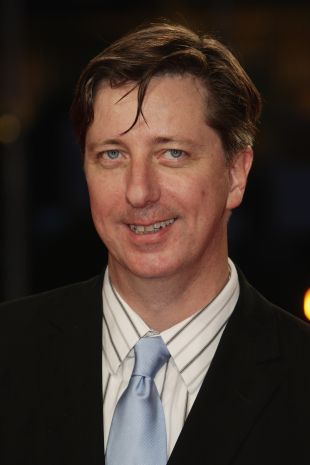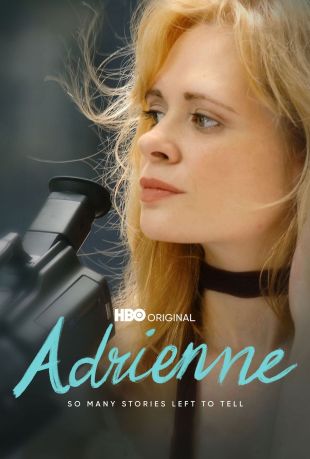A leader of the 1990s American independent filmmaking movement, writer/director Hal Hartley was one of the most distinctive cinematic talents to emerge at the close of the 20th century. Combining the deadpan aesthetic of Buster Keaton with the lean economy of Robert Bresson, his films are arch comic explorations of truth, communication, and desire. Initially supported by a recurring ensemble of actors including Martin Donovan, Adrienne Shelly, and Karen Sillas, Hartley established a uniquely self-referential vision with a sense of rhythm, atmosphere, and mise-en-scéne all its own, adhering so strictly to the auteur theory that he even composed his own musical scores under the pseudonym Ned Rifle.
Born November 3, 1959, in Lindenhurst, NY, Hartley first attended the Massachusetts College of Art, but in 1980 he transferred to S.U.N.Y.-Purchase, where he studied film under the noted director/editor Aram Avakian. Upon completing his graduation film, 1984's Kid (where he first teamed with cinematographer Michael Spiller, a fixture of his later work as well), he accepted a job with his father's construction company, later finding work in Manhattan with a public service announcement production house. After completing two more short films, 1987's The Cartographer's Girlfriend and 1988's Dogs, Hartley's employers agreed to fund his feature-length debut, 1989's The Unbelievable Truth, which he shot for just 75,000 dollars.
The film was a festival hit, and with the aid of the British production company Zenith, Hartley mounted his second feature, 1991's Trust, which like its predecessor was a dry, oblique romantic comedy shot in the director's native suburban Lindenhurst. For the PBS series Alive From Off-Center, he directed a pair of 1991 experimental shorts, Ambition and Theory of Achievement; for the same network's American Playhouse, he also helmed the hour-long Surviving Desire.
Returning to feature projects in 1992, Hartley issued Simple Men, which built on his growing fan base as it garnered a significant amount of critical attention, including an in-competition berth at the Cannes Film Festival. Two years later, the filmmaker fulfilled a lifelong dream to work with one of his idols, Isabelle Huppert, crafting for her the singularly oddball romantic thriller Amateur. Hartley's next project was even more unconventional: A feature-length expansion of his 1993 short Flirt, in which he retold the same story three times with different settings and cast members. In the last of these three segments, set in Tokyo, the director cast himself opposite his soon-to-be wife, actressMiho Nikaido. Returning to his pet themes of love, art, and familial dysfunction in Long Island, Hartley crafted the ambitious Henry Fool in 1997. Inspired by The Devil and Daniel Webster, the film nabbed Hartley the inaugural Best Screenplay award at the 1998 Cannes Festival. Two less-than-feature-length followed: The Book of Life, a comedy produced for French television about the Second Coming of Christ, starring Hartley regular Donovan as Jesus and British rock musician PJ Harvey as Mary Magdalene; and Kimono, a non-narrative erotic short starring the director's then wife-to-be Nikaido.
The doggedly independent Hartley then encountered the biggest obstacle of his career with his next feature, the acerbic fantasy-comedy No Such Thing. Nurtured by executive producer Francis Ford Coppola and given a built-in distribution deal from United Artists, Hartley took advantage of his modestly increased budget to craft a modern-day variation on Beauty and the Beast, complete with location shooting in Iceland, a higher-wattage cast including Sarah Polley and Julie Christie, and a elaborate creature costuming designed by makeup guru Mark Rappaport. Completed in time for the 2001 Cannes Film Festival, the film met with a sour critical response.
Hartley nonetheless continued to work strenuously, in various areas, throughout 2002. During this period, he taught film production at Harvard University, mounted his play Soon at the Orange County Philharmonic, and moved into preproduction on his next picture, The Girl From Monday, starring Sabrina Lloyd and Bill Sage. This eccentric, erotic science fiction tale, about a dystopian state of the near future, confounded many and disappointed most.
Hartley resurfaced at festivals in 2006 with Fay Grim, a much-anticipated sequel to Henry Fool. In this espionage thriller that blithely satirizes the state of world security, Parker Posey reprises her role as Fay, the onetime lover of Henry Fool and the mother of his now 14-year-old child, who learns that Henry's infamous book Confessions actually harbors a number of covert secrets about the inanities and barbarities committed by transcontinental governments. Many considered it a return to form, and Magnolia Pictures gave it a US release in May 2007.


/_derived_jpg_q90_310x470_m0/2192772_PA_Amateur.jpg)
